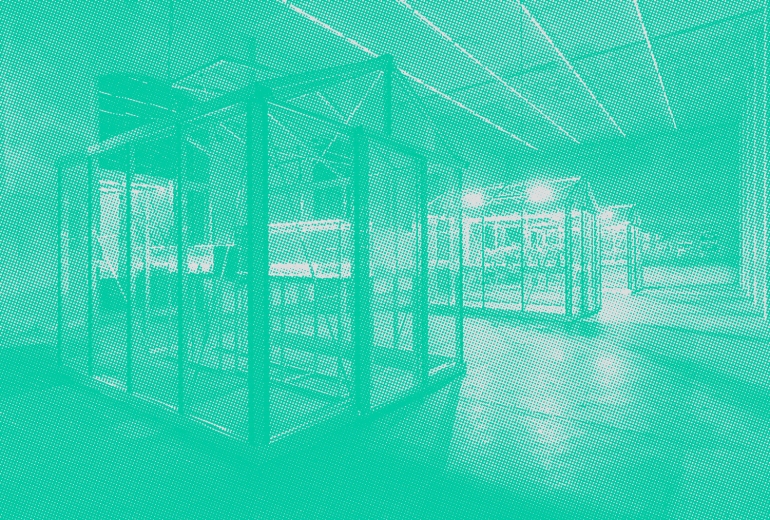
Vulnerable Beings
A public assembly on the space and time of epidemics, by Andrea Bagnato and Ivan L. Munuera
We are vulnerable beings, and the recognition of this vulnerability is a route towards existing in different ways alongside other humans, non-humans, and environments. In a public programme organised by Andrea Bagnato and Ivan L. Munuera, a broad range of guests will come together to put in context the material, political, and performative transformations highlighted by the current pandemic. Taking the form of two assemblies, the programme will imagine new spaces for action and solidarity through art and architecture.
Assembly I: Tuning In
29–31/10/2021
Conceived as a regrouping after so much time apart, Tuning In will ask whose voices need to be listened to. How can biomedical experts be complemented by more complex, expansive, and nuanced representations of “disease” and “health”? In the assembly we will engage with our entangled realities, marked by processes of healing and caring, exclusion and segregation, alternatives and possibilities. Tuning In considers what kind of bodies matter in wider geopolitical maps; how to confront modern ideas of classification and governmentality; which forms of kinship are formed through activisms; how medical metaphors have infiltrated geopolitics; what domesticity and the home mean in pandemic times; and how memory may help in pondering territories in crisis.
For three days, we will attune to the voices of Vivian Caccuri, Panagiota Kotsila, Carlo Caduff, Meike Wolf, Tomaso de Luca, Francesco Urbano Ragazzi, Dan Glass, Teresa Fabião, Anjuli Fatima Raza Kolb, Marina Otero Verzier, Rachaporn Choochuey, Sofia Gallisá Muriente, Cruz García, Fado Bicha, and João Polido.
Programme
Friday, 29/10/2021
16.30–17.00
Project Opening
With the curators Andrea Bagnato and Ivan L. Munuera, and maat’s executive director Beatrice Leanza
17.00–18.00
The New World Syrup and the Fever Hand
Performance lecture by Vivian Caccuri*
Yellow fever was introduced in the Americas in the 17th century. It was inadvertently carried on the ships used by European traders to transport enslaved Africans. A disease of colonial origins was then made worse by the ecology of the sugar plantations in the Caribbean and Northeast Brazil – as cutting down forests created a favourable habitat for the Aedes mosquitoes that transmit the virus. After having seemingly been brought under control with public health campaigns, yellow fever reappeared in Brazil in 2018 – possibly a consequence of contemporary deforestation in the Amazon. 2018 was also the year that Jair Bolsonaro’s government took power, and epidemiological concerns were woven into the nationalist politics of their campaign.
18.00–19.00
Fado Bicha
Performance
Saturday, 30/10/2021
10.30–12.00
Vulnerable Prophecies
Panel conversation with Panagiota Kotsila and Carlo Caduff*, moderated by Andrea Bagnato
In 2009, 51 cases of malaria were detected in Greece – thirty-five years after the disease's supposed eradication. The return of the disease was a consequence not just of the brutal austerity policies imposed on Southern European countries that drained healthcare spending, but of the racialization of immigrant farm workers, who were exposed to mosquitoes while exploited in the fields. Only a few years earlier, in 2005, the United States saw large-scale preparations and alarm for an upcoming pandemic of H5N1 influenza originating in farmed poultry – a threat that, at the time, did not materialise. Epidemics can be all but ignored when they involve bodies considered as disposable – or trigger large-scale preparedness when they seem to threaten the body of the nation. Depending on who or what is seen as vulnerable, public health knowledge, protocols, and narratives operate in differential ways.
12.00–13.00
Vulnerable Borders
Lecture by Meike Wolf
Aedes albopictus, or Asian tiger mosquito, is a peculiar species prone to transmitting multiple severe diseases such as dengue, yellow fever, and Zika. Present in Southeast Asia for a long time, it spread to the United States and Mediterranean Europe in the 1980s, hiding in the cracks of global shipping – from used tires to domestic bamboo plants. Governmental attempts at controlling the tiger mosquito regularly fail, and its habitat is only expected to expand as the climate warms. The Aedes mosquito defies border regimes, and challenges categories of "native" and "invasive". Above all, it requires us to find new ways of thinking vector species and pathogens – beyond modern ideas of taxonomy, territory, and governance.
13.00–14.30
Break
14.30–15.30
Tomaso de Luca, A Week’s Notice, 2020
Screening
15.30–16.30
Vulnerable Dwelling
Live chat with Tomaso de Luca and Francesco Urbano Ragazzi
"Disease", writes Francesco Urbano Ragazzi, is “the hidden agent that reinstates disorder, the archaic strength that shows the vulnerability of the world, but also and above all its amazing resistance." San Francisco was notoriously one of the earliest cities to be affected by the HIV/AIDS epidemic, where the first cases of Kaposi's sarcoma were diagnosed in 1980. In the following years, the city saw a veritable wave of evictions, as landlords used the epidemic to gentrify neighbourhoods that had long been home to the queer community. In a neoliberal world, even deadly viruses can be co-opted to accelerate the financialisation of the home and the normalisation of LGBTQ+ culture. The combination of precariousness, rising rents, and regular moves was firstly, and most heavily, experienced by marginalised social groups – but is now becoming a common condition even among the once-affluent middle classes. And yet even in such context, new forms of living and inhabiting emerge and are continuously tested and rearranged.
17.00–18.00
Vulnerable Empire
Lecture/Reading by Anjuli Fatima Raza Kolb
In the years after 9/11, terrorism was increasingly described in the West as an "epidemic" – a language peculiarly targeting Muslim populations and Muslim-majority countries. Acts of mass violence were conflated with contagion and illness; they were explained by recurring to the same imaginary of random, unknowable threats to the social body. Such metaphors are not a contemporary phenomenon but can be traced back to the early days of epidemiology in the 1850s and its roots as a tool of imperial management – when the colonised masses were regarded as a public health threat, and acts of resistance were portrayed as terrorism. The way epidemiological language has been deployed to feed racial constructs – and Islamophobia in particular – calls into question the very foundations of modern medical knowledge.
Sunday, 31/10/2021
10.30–11.30
Vulnerable Cities
Conversation with Marina Otero Verzier and Rachaporn Choochuey*
The imposition of domestic confinement as a public health strategy has a long historical genealogy – inhabitants of Medieval cities were regularly forced to stay at home during plague epidemics. Yet, its contemporary application is without precedent in its scale and pervasiveness. They way millions of people live today – in small individual apartments, owing to ever-increasing real estate prices – has been a powerful spatial barrier to any form of proximity and shared experience. Displaced or homeless people, already undergoing systemic and structural exclusion, have been particularly affected. If we are to imagine more communal ways of getting through moments of pain and suffering, values such as "privacy" and "individuality" may have to be challenged – paying more attention to ways of living and architectural arrangements that go beyond the modern Western norm.
11.30–12.00
Ira Sachs, Last Address, 2009
Screening
12.00–13.00
Vulnerable Kinship
Conversation with Dan Glass and Teresa Fabião
Since the beginning of the 1980s, when HIV/AIDS jumped into public attention through media coverage, different communities created a new definition of kinship through their activism. This form of kinship was not based on the traditional understanding of lineage (consanguinity, phylogenetic relationships, nuclear family structures), but on the shared engagement with a virus (HIV) and a disease (AIDS). HIV was the biological agent that allowed kinship to form among its carriers, acting as both kin and the apparatus by which kin was created. But these ties were not only biological – they were also social and political. Not all the people involved carried the virus or shared the same positive status, and even if they shared it, there were multiple thresholds determined by the viral load: undetectables, HIV positive with no AIDS, false positives, etc. Thus, the bonding between community members was more than biological. What they shared was a “chosen kinship”: an understanding of their relationship with HIV and AIDS in an activist way.
13.00–14.30
Break
14:30–15:30
Sofia Gallisa Muriente, Celaje, 2020
Screening
15.30–16.30
Vulnerable Memory
Conversation with Sofia Gallisá Muriente* and Cruz García*, moderated by Ivan L. Munuera
The island of Puerto Rico may be a paradigm of the postcolony as defined by Achille Mbembe. Formerly a colony of the Spanish Crown and now unincorporated United States territory – one whose citizens, to this day, hold no voting rights – it is a place held in a permanent state of crisis. In such a context, infectious diseases have been shaped and made worse by the asymmetries of power – as yellow fever in the 1800s or Zika and dengue in the 2010s illustrate. Public health has mostly served to further entrench and legitimise colonial control. This was the case with the campaign against hookworm launched by the US government in the wake of the 1898 invasion, which would inspire the activities of the Rockefeller Foundation. In the words of Sofia Gallisá Muriente, "those paying the debt adapt their eyes to the physical and mental exhaustion, the heat and humidity, the salt, mould, pollen and dust in the air; the uneven recovery, misshapen trees and layered catastrophes."
16.30–18.00
Polido
Listening session
Note: Guests marked with an asterisk (*) will take part online.
